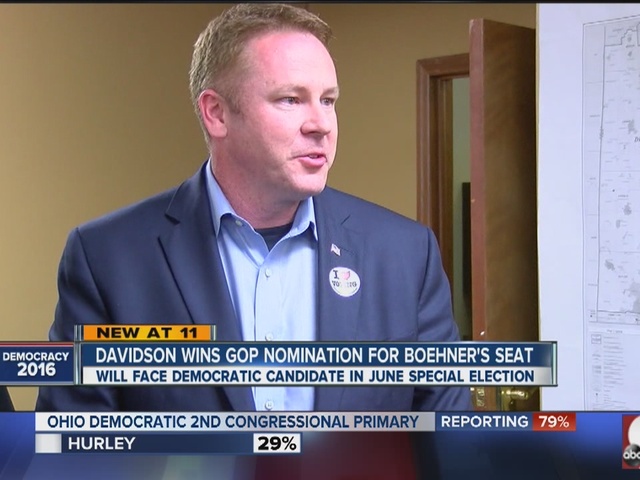by Giulia McDonnell Nieto Del Rio
In a move hailed by human rights and other activists, the House of Representatives Friday voted to curb US military involvement in the multi-sided civil war in Yemen and review Washington’s strong support for the Saudi-led intervention against rebel forces in the Arab world’s poorest nation.
The action came in the form of three Yemen-related amendments that were added without objection to the National Defense Authorization Act (NDAA), which will now be taken up by the Senate.
A measure sponsored by Ohio Republican Warren Davidson would bar funds approved in the defense bill from being used in military operations in Yemen if they were outside the scope of the Authorization for Use of Military Force Against Terrorists (AUMF) legislation, passed by Congress in the immediate aftermath of the Sept. 11, 2001 terrorist attacks.
The practical effects of the amendment remain somewhat unclear, as the 2001 law has been used to justify US military force in various post-2001 conflicts from North Africa to South Asia.
A second amendment put forward by Minnesota Democrat Rick Nolan could directly affect US participation in the conflict as well. It bans the use of funds for the purpose of deploying U.S. military personnel to the Yemeni civil war.
A third amendment, sponsored by California Democrat Ted Lieu, would require the secretaries of state and defense to submit reports on the conduct of Saudi Arabia’s two-year-old, U.S.-backed air campaign that has reportedly killed several thousand civilians, displaced hundreds of thousands more, and destroyed much of the country’s health and other civilian infrastructure.
Activists say the three provisions, if passed into law, constitute meaningful steps toward limiting US involvement in Yemen and ending Washington’s backing for the Saudi-led campaign which also includes the United Arab Emirates (UAE) and several other Arab countries.
“The amendments will put pressure on Saudi Arabia and the US government to seriously push for a political solution and to completely stop the humanitarian crisis,” said Robert Naiman of the group Just Foreign Policy, one of a number of groups, including Oxfam International and the Friends Committee for National Legislation (FCNL), that have been urging Congress to end U.S. support for the Saudi-led intervention.
What Didn’t Pass
On Wednesday, the House Rules Committee considered seven amendments to the annual defense policy bill that were aimed at reducing Washington’s logistical, weapons, and other military assistance to Riyadh and its allies.
The strongest, co-sponsored by North Carolina Republican Walter Jones and California Democrat Ro Khanna, would have ended US refueling Saudi and allied warplanes engaged in the Yemeni conflict unless the Secretary of Defense certified that such support was in the US national interest and that it would not result in airstrikes on civilian targets.
Critics of US support for the two-year-old campaign have argued that, without U.S. refueling assistance, Saudi Arabia and its allies will be unable to continue the devastating airstrikes that have affected hundreds of thousands of Yemeni civilians. Yemen faces both air attacks and a partial Saudi blockade that is choking supplies of foodstuffs and other vital humanitarian aid.
“I am disappointed that the House will not vote on amendments that would enforce greater oversight of U.S. operations in Yemen,” Khanna said in an interview with The Intercept after the Rules Committee adjourned.“Congress is doing a disservice in not acknowledging the civilian impact of our military operations in the Middle East. We must instill measures to prevent further atrocities in Yemen.”
Other amendments put aside by the Rules Committee would have set limits on the provision of air-to-ground weapons to Saudi Arabia and its allies and banned transfers to Saudi Arabia of so-called “cluster munitions,” which, critics say, have taken a devastating toll on civilians. Other measures would have required US reports on Saudi efforts to reduce civilian casualties and mandated an investigation into reports of secret prisons and the use of torture by UAE forces in the Yemeni conflict.
War’s Impact
The conflict between the Saudi-led coalition and the Houthi rebels has led to more than 10,000 civilian deaths in the past two years.
Destruction of basic health and water and sanitation infrastructure—most of it caused by airstrikes—has led to the world’s worst recent outbreak of cholera, with more than 300,000 cases reported so far, according to an announcement made by the International Committee of the Red Cross on Monday. Activists say that seven million Yemenis are now on the brink of starvation and 10 million children are in need of urgent assistance.
The deteriorating situation in Yemen makes it impossible for humanitarian aid to reach many of the hundreds of thousands affected by the conflict. The World Health Organization (WHO) Tuesday announced that the suspension of its plans for a cholera vaccination campaign and that the vaccines would be sent elsewhere. The rapid transmission of cholera cases in Yemen, as well as the lack of infrastructure and continued warfare, would likely make it impossible for the vaccines to reach the people who really need them, WHO’s Christian Lindmeier told the New York Times.
The Saudi-led coalition, which includes Kuwait, UAE, Bahrain, Egypt, and Sudan, has been fighting against Yemen’s Houthi rebels and the forces of former Yemeni President Ali Abdullah Saleh since 2015 when the insurgents took the capital, Sana’a, and drove the Saudi-backed president, Abdrabbuh Mansur Hadi, out of the country.
The House action came just four days after the UK’s High Court ruled that British arms sales to Saudi Arabia were lawful and did not violate international humanitarian law. The court rejected arguments from activists, including Oxfam and the Campaign Against the Arms Trade, that British arms sales to the kingdom were illegal.
“This sets back arms control 25 years and gives ministers free rein to sell arms to countries even where there is clear evidence they are breaching international humanitarian law,” said Mark Goldring, Chief Executive of Oxfam Great Britain. “The risk of fathers, mothers, sons, and daughters having their lives cut short will continue in Yemen due to UK-exported weapons. People’s homes and local markets will continue to be bombed. And if the bombs don’t kill them hunger and disease will.”
The July 10 decision, which UK activists will likely appeal, has only spurred efforts in the United States to press Congress to take action.
“The UK’s egregious ruling adds more urgency for the US Congress to stop fueling the Saudi-led war that has plunged millions of Yemenis to the verge of starvation and has sparked the world’s largest cholera outbreak,” FCNL’s Kate Gould told LobeLog before Friday’s vote.
The Larger Conflict
The Trump administration has signaled its strong support for Saudi Arabia as an ally in the battle against al-Qaeda and the Islamic State (ISIS or IS) and in “containing” Iran’s influence in the region. The Saudi-led coalition and the Trump administration have charged that Iran is providing critical covert support to the Houthis, although most independent regional specialists have questioned the degree and importance of Tehran’s assistance. Some assert that the Saudi intervention has actually strengthened the position of al-Qaeda in the Arabian Peninsula (AQAP) in Yemen.
The war in Yemen “has nothing to do with fighting al-Qaeda or ISIS and therefore it should stop,” Naiman argued .
In Washington, activists and policymakers alarmed at the Yemen conflict have been encouraged by growing congressional attention to the issue.
Just a month ago, the Senate narrowly rejected — by a an unexpectedly close 47-53 margin an effort to block the sale of $510 million of precision munition weapons to Saudi Arabia. And two weeks ago, Senator Bob Corker (R-TN), the Chair of the Foreign Relations Committee, put a hold on new arms sales to Saudi Arabia pending a resolution of the Saudi-led quarantine of Qatar. Qatar was part of the Saudi-led coalition in Yemen until last month.
Foes of the Saudi campaign applauded approval of the three amendments Friday.
“These are certainly very powerful amendments that have passed, and they highlight the fact that there is growing momentum in the House opposing all participation in the Saudi-led war, including refueling,” Gould asserted. “Refueling should end, and we will be pushing for that.”
Advocates of the refueling ban, and on prohibiting funds to be used for military intervention in Yemen, insist the amendments should send a clear message to Riyadh—and to Washington—that it is time to rethink the war strategy in Yemen, and across the Middle East.
“By passing this legislation with our amendments, we’re ensuring that no hero in U.S. military uniform will be put in harm’s way in a conflict that can only be settled by the parties involved,” Rep. Nolan said in his speech to the House on Friday. “We have already spent trillions of dollars and lost thousands of precious lives in endless wars of choice in the Middle East. It’s time to put a stop to it—and start reinvesting in America and our people.”
Giulia McDonnell Nieto Del Rio is a rising senior at Williams College in Massachusetts. She has written and worked for the human rights NGO Cultural Survival in Cambridge, Massachusetts, and is currently an intern for LobeLog at the Institute for Policy Studies in Washington D.C. Photo: Warren Davidson






Thank you for you article on weapons in SA & UAE used against Yemini’s. This is horrifying, as if no on cares about the fate of a whole country, as the disease epidemic grows, lives are lost, mental,emotional, and physical damage are incalculable and May last generations. I cannot understand at all how Obama approved money and ATMs for this barbaric horror.